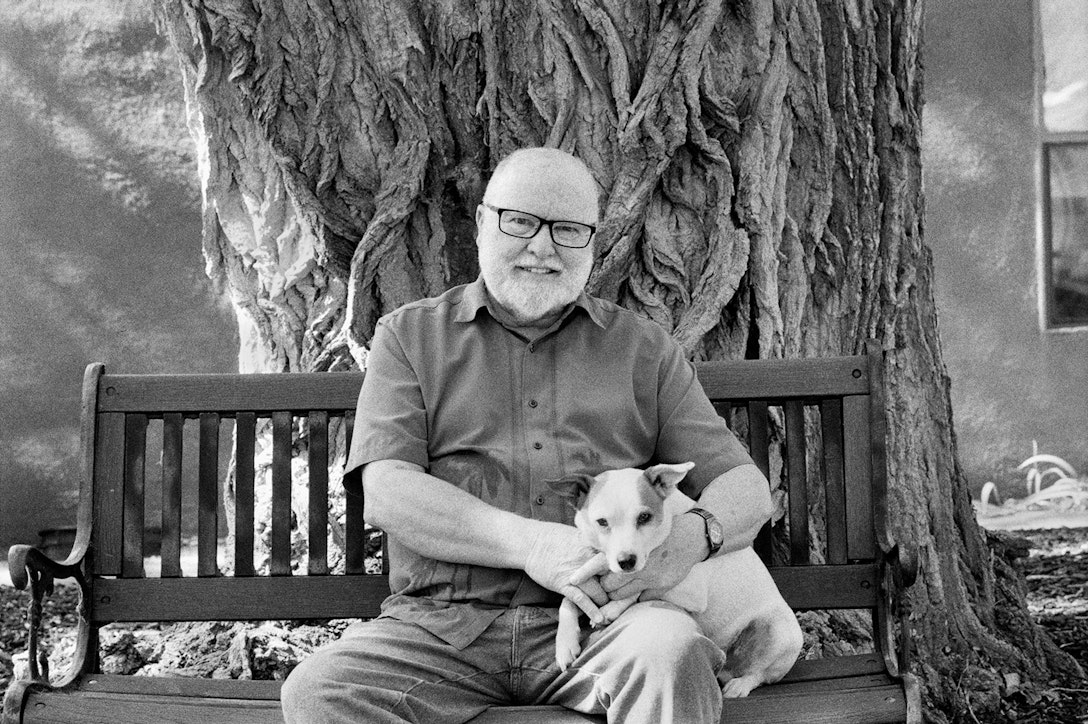
Father Richard Rohr, OFM
Albuquerque, New Mexico, USA
GOD IS RELATIONSHIP
Throw away your measuring tapes, your scales, your weighing—because you’re trying to weigh the infinite. When we talk about God, all the different words of different religions use are like fingers pointing to the moon. Approximations. But you can’t weigh or measure or calculate or dole out the infinite. There’s enough to go around. It’s a worldview of abundance. We understood God in a worldview of scarcity. And so we see politics based on a worldview of scarcity. There isn’t enough healthcare to go around, there aren’t enough homes to go around. Everything is...there’s not enough. I’m getting political now, but people have way more than they need or ever could use in their lifetimes. So let’s throw away our weighing, our counting. Stop counting who’s worthy, who’s not worthy. And if you look at many political arguments, that’s at the bottom. Who’s worthy and who isn’t worthy? They try to weigh worthiness. It ends you up in a hole, a dead end. It’s stupid, stupid, stupid. I’m not worthy and once I’ve accepted and forgiven that, then I can forgive everybody else’s seeming unworthiness.
Daniel’s Reflection
I felt like I’d won the lottery when Franciscan priest Richard Rohr agreed to my interview request. Early in his career, Father Rohr led the New Jerusalem community in Cincinnati, Ohio so we have a dear friend in common, Dr. Deborah Ooten. He left Cincinnati for New Mexico where he worked with Native Americans and founded the Center for Action and Contemplation. He is quite the rock star priest, with Oprah having interviewed him twice and Bono writing an endorsement for his latest book, The Universal Christ: How a Forgotten Reality Can Change Everything We See, Hope for, and Believe. His broad appeal is that he takes a very progressive view of faith that he asserts is closer to Jesus’s original message than what is being practiced in Christianity today. In fact, he says the first 2,000 years of Christianity will be called “Early Christianity!”
Richard Rohr’s message is that Christianity (and by inference, all religion) has been hijacked by Western individualism and that we have lost the focus on our collective relationship with God. Rohr believes we incorrectly view the rewards of the spiritual life as a “private evacuation plan for the few.” Instead, he posits that we need to see salvation as an all-or-nothing proposition—that we are all in this together. By “all of us” he means all of God’s creation—including the universe, the Earth, all living and nonliving things that are part of what Rohr calls “God’s original revelation.” Wow! In the world he describes, no one is unworthy and all is sacred. Sign me up!
Father Rohr says that, “God is relationship.” By this he means relationship with the collective, not the singular. This is his understanding of the Trinity, but he does not limit this understanding to Catholic theology. I love the idea that God is in the relationship among us all and that God speaks to us collectively.
My time with Richard Rohr also reinforced for me how prevalent self-hatred and perfectionism can be in spiritual and religious circles. I loved when Father Rohr described in our interview where he realized these were false constructs: “I think it was after a period of trying too hard to be perfect. In all the little ways we had vows and being on time and being respectful of not thinking unlovingly of your fellow novices and I just realized I couldn’t do it. And I had another strong experience of God and I’ve always said it felt like chains flew in all directions and this was a God I could rely upon to love me, to accept me, to embrace me, to give to me. Even if I was not perfect. Even if I fell. And that’s been much of my message to this day. That you come to God by doing it wrong, that’s breathing under water. Not by doing it right. But for a vast majority of people in all religions, there’s a right way that’s taught you order. You think that by continuing that order you will maintain the favor of God. That’s not true. You have the favor of God already and until you know that and can rest in that it’s really the only thing you can rest in.”
And this sense of perfectionism can lead to self- hatred and doubting our gifts. This is all part of the process that Rohr calls “ORDER—DISORDER—REORDER.” I love this idea that the spiritual journey is constantly reordering us.
I shared with Father Rohr that his idea of the “universal Christ” and “cosmic Christ” reminded me of the wonderful Academy Award-winning film from the 1960s called “Shoes of the Fisherman.” Anthony Quinn plays a Russian dissident bishop who becomes pope during the Cold War. He has to silence his assistant who speaks of a “cosmic Christ” instead of a literal resurrected Christ. Richard Rohr says this universal Christ need not be called Christ and that he cannot be certain it is the only way to salvation. What an amazing time we live in if our paths to living a sacred life need not include judgment and exclusion.
Richard Rohr is living with cancer and he is grateful for a life lived beyond any expectations he ever had. His life as a Franciscan and his status as a living sage to so many of us is beyond anything he ever expected or felt he deserved. I suspect that is exactly his draw. His humility, his self-doubt, and his own journey to spread an inclusive, healing message are exactly what we need in these times.
Explore the portraits by theme
- happiness
- grief
- addiction
- sexuality
- sobriety
- transgender
- alcoholism
- suicide
- homelessness
- death
- aggression
- cancer
- health
- discipline
- abortion
- homosexuality
- recovery
- connection
- enlightenment
- indigenous
- depression
- meditation
- therapy
- anger
- forgiveness
- Doubt
- interfaith
- worship
- salvation
- healing
- luminaries

